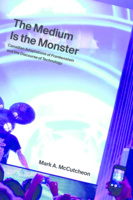At the Bridge
James Teit and an Anthropology of Belonging
At the Bridge lifts from obscurity the story of James Teit (1864–1922), an outstanding Canadian ethnographer and Indian rights activist whose thoughtful scholarship and tireless organizing have been largely ignored.
Ruling Out Art
Media Art Meets Law in Ontario’s Censor Wars
This fascinating account of Ontario’s 1980s’ censor wars shows that when art intersects with law, artists have the power to transform the law, and the law, in turn, can influence the concept of art.
Saving the Nation through Culture
The Folklore Movement in Republican China
Saving the Nation through Culture tells the little-known story of how a group of Chinese scholars attempted to use “low culture” to promote national unity during a long period of crisis.
Incorporating Culture
How Indigenous People Are Reshaping the Northwest Coast Art Industry
Incorporating Culture examines what happens when Indigenous people assert control over the commercialization of their art by instilling the market with their communities’ values.
Live at The Cellar
Vancouver’s Iconic Jazz Club and the Canadian Co-operative Jazz Scene in the 1950s and ‘60s
Live at the Cellar tells the story of Vancouver’s iconic jazz club and other co-operative scenes during the 1950s and ’60s and the profound influence they had on the evolution of jazz in Canada.
Memory
This collection of essays asks readers to think critically, creatively, and broadly about how, why, and when we remember, at a time when the idea of memory – through the commemoration of the First World War – is at the forefront of public discourse.
The Medium Is the Monster
Canadian Adaptations of Frankenstein and the Discourse of Technology
Technology, a word that emerged historically first to denote the study of any art or technique, has come, in modernity, to describe advanced machines, industrial systems, and media. McCutcheon argues that it is Mary Shelley’s 1818 novel Frankenstein that effectively reinvented the meaning of the word for modern English.







